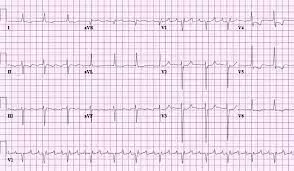- Home
- Medical news & Guidelines
- Anesthesiology
- Cardiology and CTVS
- Critical Care
- Dentistry
- Dermatology
- Diabetes and Endocrinology
- ENT
- Gastroenterology
- Medicine
- Nephrology
- Neurology
- Obstretics-Gynaecology
- Oncology
- Ophthalmology
- Orthopaedics
- Pediatrics-Neonatology
- Psychiatry
- Pulmonology
- Radiology
- Surgery
- Urology
- Laboratory Medicine
- Diet
- Nursing
- Paramedical
- Physiotherapy
- Health news
- Fact Check
- Bone Health Fact Check
- Brain Health Fact Check
- Cancer Related Fact Check
- Child Care Fact Check
- Dental and oral health fact check
- Diabetes and metabolic health fact check
- Diet and Nutrition Fact Check
- Eye and ENT Care Fact Check
- Fitness fact check
- Gut health fact check
- Heart health fact check
- Kidney health fact check
- Medical education fact check
- Men's health fact check
- Respiratory fact check
- Skin and hair care fact check
- Vaccine and Immunization fact check
- Women's health fact check
- AYUSH
- State News
- Andaman and Nicobar Islands
- Andhra Pradesh
- Arunachal Pradesh
- Assam
- Bihar
- Chandigarh
- Chattisgarh
- Dadra and Nagar Haveli
- Daman and Diu
- Delhi
- Goa
- Gujarat
- Haryana
- Himachal Pradesh
- Jammu & Kashmir
- Jharkhand
- Karnataka
- Kerala
- Ladakh
- Lakshadweep
- Madhya Pradesh
- Maharashtra
- Manipur
- Meghalaya
- Mizoram
- Nagaland
- Odisha
- Puducherry
- Punjab
- Rajasthan
- Sikkim
- Tamil Nadu
- Telangana
- Tripura
- Uttar Pradesh
- Uttrakhand
- West Bengal
- Medical Education
- Industry
Intravenous iron may benefit patients with chronic heart failure: IRONMAN Trial.

IRONMAN trial found that in heart failure patients with reduced left ventricular ejection fraction and iron deficiency, intravenous ferric derisomaltose administration was associated with a reduced risk of hospital admissions and cardiovascular death. The trial results were published in The Lancet journal.
Iron deficiency is common in patients with chronic heart failure, despite the left ventricular ejection fraction or hemoglobin concentrations. It is independently associated with severe symptoms, poorer exercise capacity, and an increased risk of hospitalization and death. Intravenous ferric carboxymaltose administration in patients with heart failure having reduced left ventricular ejection fraction and iron deficiency, has given short-term benefits of improving the quality of life, and exercise capacity and also reduces hospital admissions for heart failure up to 1 year. Hence researchers conducted a prospective, randomized, open-label, blinded-endpoint trial aimed to evaluate the longer-term effects of intravenous ferric derisomaltose on cardiovascular events in patients with heart failure.
IRONMAN trial was carried out at 70 hospitals in the UK. Eligible patients aged 18 years or older with heart failure and having a left ventricular ejection fraction ≤45% and transferrin saturation of less than 20% or serum ferritin less than 100 μg/L were enrolled in the study. By using a web-based system, participants were randomly assigned (1:1) to intravenous ferric derisomaltose or usual care, stratified by recruitment context and trial site. Based on the patient's body weight and hemoglobin concentration, the intravenous ferric derisomaltose dose was calculated. The primary outcome was recurrent hospital admissions for heart failure and cardiovascular death, assessed in all validly randomly assigned patients. Safety was assessed in all patients assigned to ferric derisomaltose who received at least one infusion and all patients assigned to usual care. A COVID-19 sensitivity analysis censoring follow-up on Sept 30, 2020, was prespecified.
Trial results:
- Out of 1869 patients screened, 1137 eligible patients were randomly assigned to receive intravenous ferric derisomaltose (n=569) or usual care (n=568).
- Median follow-up was 2·7 years (IQR 1·8–3·6).
- The ferric derisomaltose group had 336 primary endpoints (22·4 per 100 patient-years) and the usual care group had 411 (27·5 per 100 patient-years).
- There were 210 primary endpoints (22·3 per 100 patient-years) in the ferric derisomaltose group compared with 280 (29·3 per 100 patient-years) in the usual care group (RR 0·76 [95% CI 0·58 to 1·00]; p=0·047) as per the COVID-19 analysis.
- There were no between-group differences in deaths or hospitalizations due to infections.
- Fewer patients in the ferric derisomaltose group had cardiac serious adverse events (200) than in the usual care group (243; difference 7·00%).
Thus, intravenous ferric derisomaltose administration can reduce the risk of hospital admissions for heart failure and cardiovascular death in patients with heart failure who have reduced left ventricular ejection fraction and iron deficiency.
BDS, MDS
Dr.Niharika Harsha B (BDS,MDS) completed her BDS from Govt Dental College, Hyderabad and MDS from Dr.NTR University of health sciences(Now Kaloji Rao University). She has 4 years of private dental practice and worked for 2 years as Consultant Oral Radiologist at a Dental Imaging Centre in Hyderabad. She worked as Research Assistant and scientific writer in the development of Oral Anti cancer screening device with her seniors. She has a deep intriguing wish in writing highly engaging, captivating and informative medical content for a wider audience. She can be contacted at editorial@medicaldialogues.in.
Dr Kamal Kant Kohli-MBBS, DTCD- a chest specialist with more than 30 years of practice and a flair for writing clinical articles, Dr Kamal Kant Kohli joined Medical Dialogues as a Chief Editor of Medical News. Besides writing articles, as an editor, he proofreads and verifies all the medical content published on Medical Dialogues including those coming from journals, studies,medical conferences,guidelines etc. Email: drkohli@medicaldialogues.in. Contact no. 011-43720751




